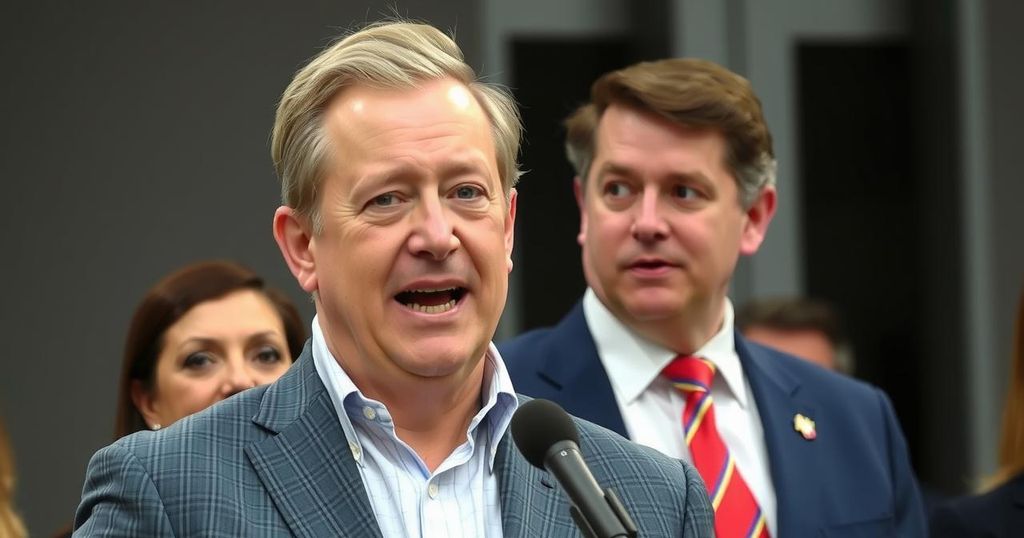Elon Musk’s Controversial Support for Germany’s Far-Right AfD
Elon Musk publicly supports Germany’s far-right AfD in an op-ed, claiming it represents hope for the country’s recovery. His statements have drawn sharp criticism from politicians and media, with accusations of interference in German democracy. The controversy focuses on the implications of influential figures affecting political narratives and the integrity of media outlets in election contexts.
In an op-ed published in the Welt am Sonntag, US tech billionaire Elon Musk reiterated his support for Germany’s far-right political party, the Alternative for Germany (AfD), emphasizing his belief that the party represents “the last spark of hope for the country.” He asserted that only the AfD could protect Germany from economic and cultural decline and ensure a controlled immigration policy. Musk’s endorsement has sparked significant backlash, especially from political opponents and media figures, who argue that his influence is detrimental to democratic values as Germany approaches its legislative election on February 23.
Musk dismissed the AfD’s label as an extremist party, countering claims by pointing to the party leader Alice Weidel’s diverse background. His op-ed has raised concerns over foreign intervention in elections, with critics labeling it an unwarranted influence. Prominent political figures voiced their discontent, with Friedrich Merz criticizing Musk’s actions as intrusive and Lars Klingbeil comparing him to Russian President Vladimir Putin for attempting to disrupt Germany’s political landscape.
Despite the controversy surrounding Musk’s remarks, they highlight ongoing debates about the role of the media and individual opinions in political discourse. In Germany, press freedom allows for commentary on political candidates, but Musk’s involvement has prompted fears of media being exploited for propagandist purposes. The endorsement raised questions about editorial integrity and the responsibility of media outlets to remain unbiased.
Musk’s ties to the conservative Springer publishing group, which owns Welt, have been scrutinized, particularly regarding CEO Mathias Döpfner’s past comments on the AfD and desires to influence political narratives. Analysts consider Musk’s financial interests, such as supporting reductions in regulation and taxes that might benefit his Tesla factory in Germany, potentially aligning with his political endorsements. This situation illustrates the complex intersection of politics, media, and corporate interests as right-wing populism gains traction in Europe.
Elon Musk’s endorsement of the far-right AfD reflects a broader pattern of increased political engagement by wealthy individuals in elections globally. The AfD, known for its nationalist and anti-immigration stances, has seen a rise in popularity in Germany, polling at around 20%. Musk’s statements come at a pivotal moment before Germany’s upcoming legislative elections, intensifying discussions about foreign influence and the responsibilities of media in shaping political narratives. The implications of Musk’s actions raise critical questions about the intersections of power, media responsibility, and democratic ideals in the face of rising populism.
Musk’s endorsement of the AfD amplifies concerns about foreign interference in democratic processes and the potential normalization of far-right ideologies. The reactions from various political leaders in Germany underscore the divisive nature of such endorsements, especially in the shadow of approaching elections. This incident serves as an example of how media, political discourse, and financial power can converge, creating significant implications for the democratic landscape in Germany and beyond.
Original Source: www.dw.com




Post Comment